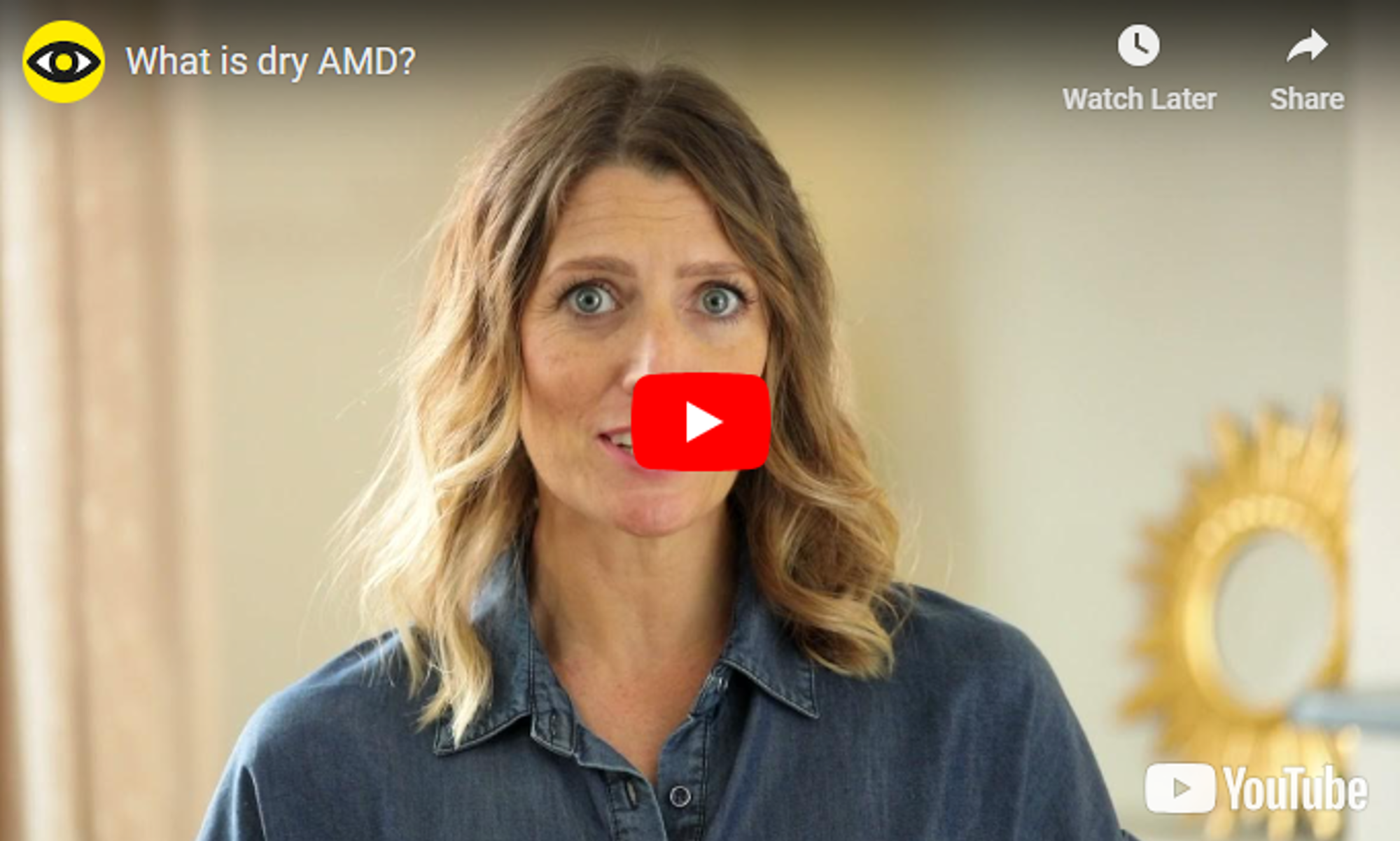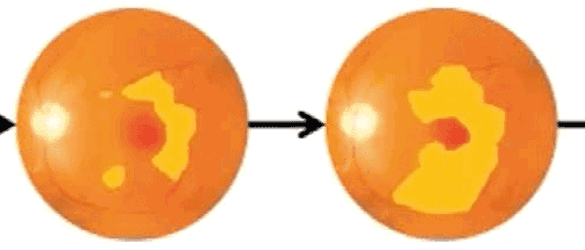Dry age-related macular degeneration (AMD)
Dry age-related macular disease (AMD) is a slow deterioration of the cells of the macula, often over many years, as the retinal cells die off and are not renewed. The term ‘dry’ does not mean the person has dry eyes, just that the condition is not wet AMD.
The progression of dry AMD varies, but people often carry on as normal for some time.
Video - What is dry AMD?
What are the symptoms?
Macular disease affects people in different ways.
- Gaps or dark spots (like a smudge on glasses) may appear in your vision, especially first thing in the morning. Objects in front of you might change shape, size or colour, or seem to move or disappear.
- Colours can fade.
- You may find bright light glaring and uncomfortable, or find it difficult to adapt when moving from dark to light environments.
- Words might disappear when you are reading.
- Straight lines, such as door frames and lampposts may appear distorted or bent.
Diagnosing dry AMD
The optometrist at your local optician can test sight, prescribe glasses and check for eye disease. Some optometrists use photography or other imaging to detect early signs of macular degeneration. These might include optical coherence tomography (OCT) scans which create cross-sectional images of the retina. You may be charged for these tests.
There is currently no treatment for dry AMD. That means that you might not be referred to hospital, unless the optometrist needs to confirm their diagnosis, or thinks you need to use the hospital’s low vision service.
If your sight has worsened and you want to be registered as sight impaired , you will need a hospital appointment.
Although there’s no treatment, that doesn’t mean there’s nothing to be done. Our helpline can talk you through ways to make life easier, adapt to sight loss, and answer your questions. Call 0300 3030 111 or email help@macularsociety.org
Is your sight at risk?
Worried you might be at risk of macular disease?
Just answer five simple questions and we'll estimate your risk of age-related macular degeneration (AMD). It'll only take a minute, and it could make a world of difference to your sight.
Check your riskTreating dry AMD
There is no medical treatment for dry AMD, which is why the Macular Society is committed to funding research into a possible cure. Read more about the research projects we fund.
Around 10-15 per cent of people with dry AMD go on to develop wet AMD. If you have dry AMD and notice a sudden change in your vision, it is important that you contact your optometrist, or hospital eye specialist, urgently. If you have AMD in one eye, the other eye may also be affected within a few years.
Want more information or advice?
Call the Macular Society Helpline on 0300 3030 111 or email help@macularsociety.org
Last review date: 03 2022
What is geographic atrophy?
Geographic atrophy (GA) is the scientific term for late stage dry aged-related macular degeneration (AMD). It is called geographic atrophy, as the damage to the macula tends to start as patches of damage (or atrophy) that look like islands on a map when a doctor looks at the back of the eye.
Support for you
We provide free information and support to those with macular disease, along with their family and friends, to help people keep their independence.
Free confidential advice and support
Call our helpline on 0300 3030 111
Lines are open 9am - 5pm Monday to Friday
About the Macular Society Helpline




